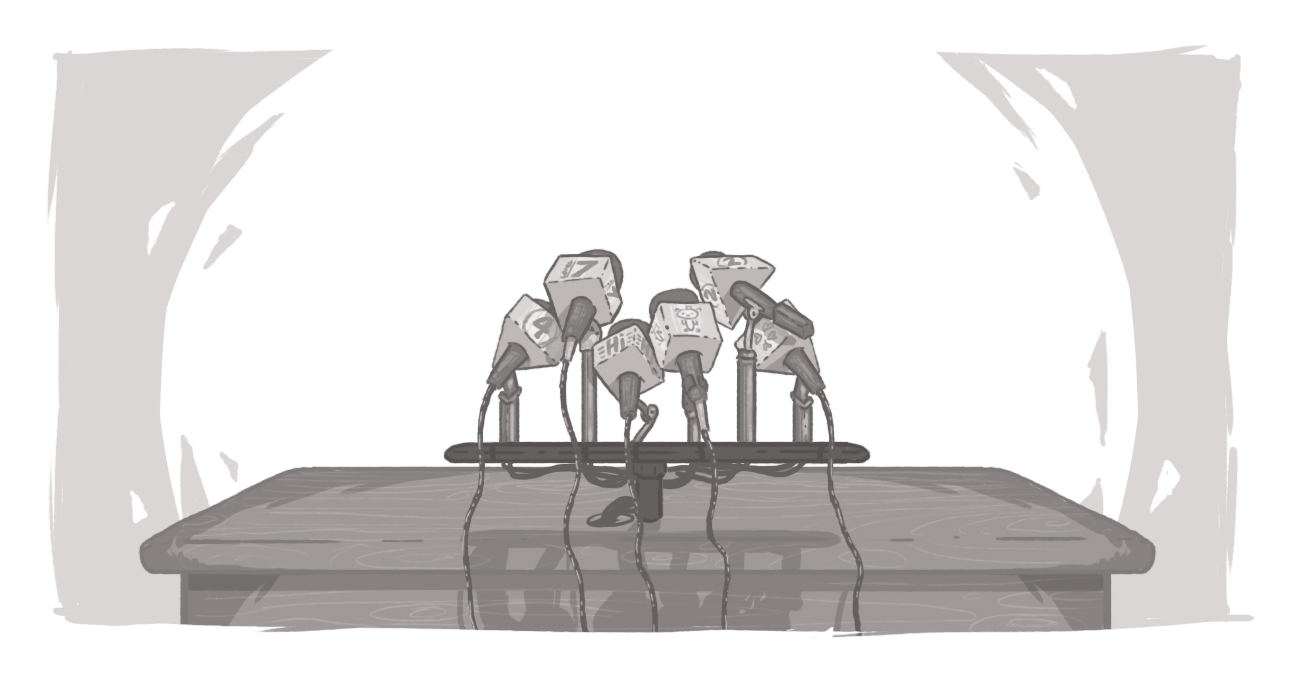A Fate Worse than Death? Conquering Public Speaking at Camps, Conventions

Over the years, I've had the pleasure of attending a number of events. Some, I've been just an attendee, soaking up the information as it's presented; at others, I've been an active participant, presenting to a (hopefully captivated) audience! Having just returned from DrupalNorth, I thought I'd share my thoughts on effectively presenting to the crowd.
And while this learning comes from tech-focused presentations, they can easily be applied to whenever and wherever you're public speaking.
Breathe
It seems simple, but it's often the one thing people forget to do. Not only is breathing essential to life, it's essential to calming nerves and presenting effectively. It's easy to get nervous. After all, there's an old truism that states that people fear public speaking more than death. But there are a number of ways to mitigate that fear -- many of which we'll talk about here.
But the first thing you need to do is breathe. All the rest flows from there.
Speak to Your Passion
If you've been asked to do a presentation, or if you're choosing to submit a presentation for consideration, make sure it's something that you're passionate about. Your interest, excitement, and passion will come shining through in the presentation.
Chances are if you're passionate about something, you're likely going to be fairly knowledgeable about it too. So that should help reduce the nerves because if you know what you're talking about, you're going to be more confident about presenting it.
You Care, but Why Should the Audience?
Take the time, early on in your presentation, to involve the audience. Engage their interest by letting them know why they should care about what you're talking about. Context can be really helpful in regards to drawing people into your discussion.
And don't just talk -- interact. Make sure you draw your audience into the presentation early. Ask questions -- even something as simple as asking people to raise their hands if they're familiar with the topic. That way, you're moving them from being passive -- and possibly detached -- spectators, towards something a little more active and invested. Encourage the audience to ask questions. This way, you're not just presenting "at" them, but rather creating a dialogue that's far more interesting for everyone.
Don't be Dependent
This is a key one for me. Minimize dependencies in your presentation. You can include demonstrations, but avoid the need for live access -- because invariably, something will go wrong with the wifi and your presentation will be derailed as you fumble around (or watch the IT person fumble around) trying to get you back up and running.
Use a local environment and/or use pre-made screen captures in your presentation. And, most importantly, remember that your PowerPoint or slideshow is there to complement your presentation -- it shouldn't be the focus.
There are few things more boring than watching someone, with their back to the audience, read a PowerPoint slide. Instead, your slides should be quick and digestible points, which you're going to expand upon in your presentation.
Practicing your presentation also helps reduce dependency. If you're able to rehearse a few times, using your slides only as prompts, it will feel more natural and engaging. If you're not presenting with your head down, reading word-for-word from a script, your audience will be eminently appreciative of your efforts. Plus, this has the added advantage of allowing you to see where you need to slow down, speed up, or expand upon thoughts to fill your time slot.
It's always good to practice in front of someone else. That person can give you feedback: what works, what doesn't, what areas need to be explained in greater detail, what parts may be redundant or too long? Too often we take for granted that people know something, but presenting to a friend or colleague can help us combat those assumptions and create a more well-rounded presentation.
Move
Motion is interest. If you're standing stiff as a board at the front of the crowd, you're going to come across as nervous and unsure of yourself. Feel free to walk around, looking at other people in the crowd, engaging all parts of the room. For me, I find that helps to expend nervous energy and it makes the discussion feel a little more natural. Just don't pace!
Some people talk with their hands, some tell jokes or go off on tangents -- there is no right or wrong answer (unless the jokes are awful), but the key is to make your presentation feel natural and conversational.
In addition, I like to have a glass of water on hand. Not only does this help to prevent dry mouth from talking, but it also prompts me to pause every once in a while when I'm presenting.
You Can Do This
Most importantly, you are capable of doing this. Even if you're paralyzed by fear at the thought of public speaking, you can eventually do it. You have value and you have a unique perspective that's formed by your education, training, and experiences. You don't have to be an expert; you don't have to focus on advanced-level topics. In my experience, many conventions and camps are starved for entry-level content.
A great place to gain experience and confidence are your local groups. In London, we have LonDUG and other meet-ups that represent a great chance for you to practice your presentations. Generally, they're smaller and friendly audiences that can help ease the transition into public speaking. But remember, just because they're smaller or local doesn't mean they don't deserve your best! You're not using them to workshop your presentation -- make sure you give them the best you've got, then solicit feedback to make changes.
Those are just a few of my thoughts on the matter. I'm going to be reaching out to my colleagues here at Echidna to share their collective experiences in a future blog post. And, of course, I'd love to hear from you. What tips and techniques do you use when public speaking? Or what's holding you back? What fears and doubts are preventing you from walking up to the podium and sharing your expertise? Feel free to let us know in the comments section below.
How can I be a better public speaker?
How do I make a presentation?
SUBSCRIBE TO OUR E-NEWSLETTER
 Subscribe
Subscribe


